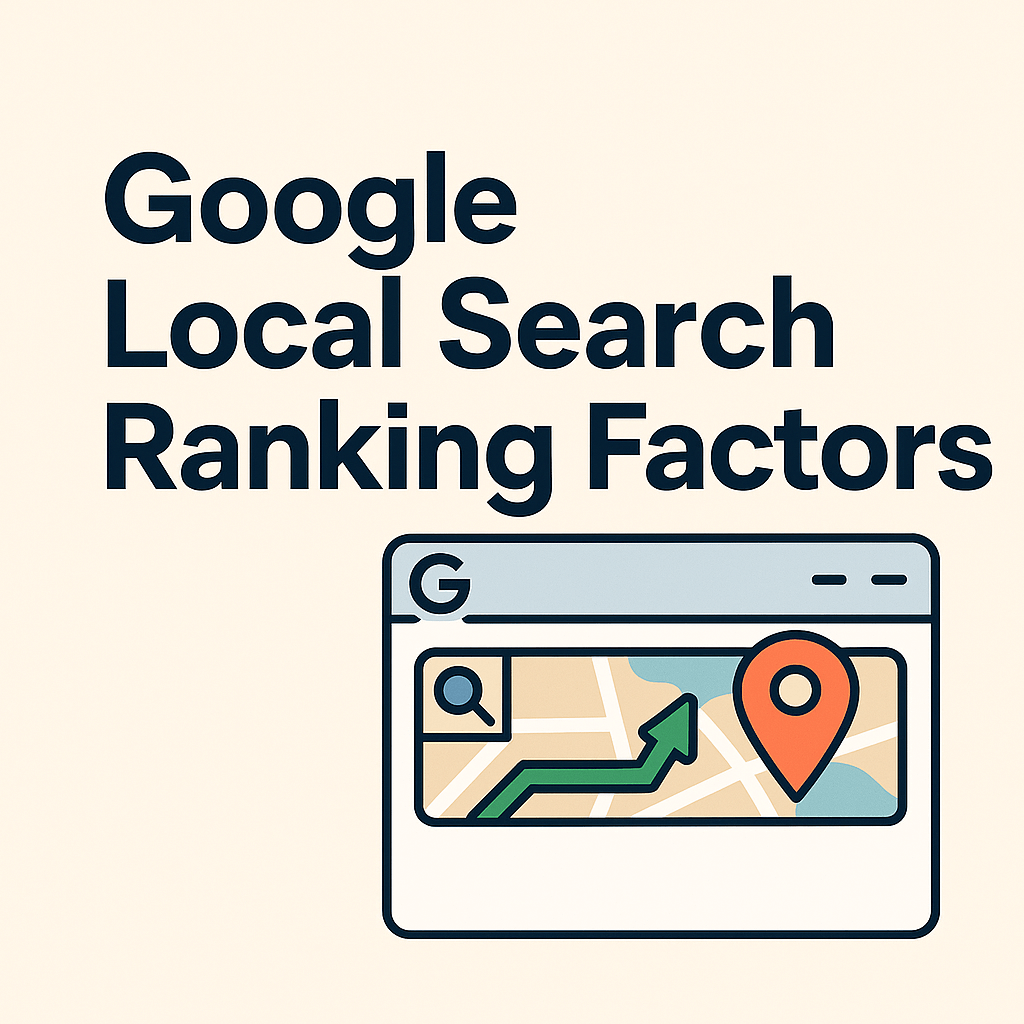A local-run business that depends on local customers — whether you’re a sleep coach, dentist, gym owner, nutrition coach, café, real-estate agent, or any service provider — already knows that appearing on Google when customers search “near me” can change everything. But what exactly determines which businesses show up in the Local Pack, Map Results, and Local Organic Search?
Search engines evaluate dozens of signals to decide which businesses receive visibility. To help you stay ahead, here is a clear breakdown of the top Local Search Ranking Factors and what they mean for your business.
1. Google Business Profile (GBP) Signals
Your Google Business Profile (GBP) is one of the strongest signals influencing local rankings. Factors such as your primary category, additional categories, business title, location, hours, services, images, and regular updates all affect search performance. The more complete and accurate your GBP, the greater your chance of appearing in the Local Pack.
2. On-Page Signals
Your website must reinforce the information displayed on your Google Business Profile. On-page signals include title tags, headings, service pages, location pages, NAP details (Name, Address, Phone), keyword optimization, and content that demonstrates expertise. A strong SEO-optimized website helps Google validate your business and improves rankings.
3. Review Signals
Customer reviews play a major role in trust and ranking. Signals include review quantity, review velocity (how frequently reviews are received), star ratings, keywords used in reviews, and responses from the business owner. Positive, consistent, and authentic reviews send strong trust signals to Google and potential customers.
4. Link Signals
Backlinks from relevant and trusted websites help demonstrate that your business is credible and authoritative. Quality matters more than quantity. Local backlinks — from news sites, industry blogs, associations, sponsorships, and community organizations — are especially valuable for improving local rankings.
5. Behavioural Signals
Google closely observes how users interact with your business online. Metrics such as click-through rate, call-to-action clicks, direction requests, dwell time on your website, and return visits indicate whether users find your business helpful. More engagement signals tell Google your business is a reliable result to show.
6. Citation Signals
Citations are online mentions of your business details (name, address, phone number) across directories and platforms. Consistency is key. Inaccurate or outdated citations create trust issues with Google. Listing your business on reputable platforms strengthens credibility and supports higher rankings.
7. Personalization Signals
Search results are now personalized based on the searcher’s physical location, preferences, device type, and search history. This means a business may rank differently from one user to another. Tailoring content and GBP categories to match your most relevant audiences can boost performance.
8. Social Signals
Engagement on social media — likes, comments, check-ins, shares, brand mentions, and user interactions — contributes to your online presence and trustworthiness. While social signals are not the biggest ranking factor, active and authentic social engagement supports brand authority and indirectly improves local visibility.
Final Thoughts: Google Local Search Ranking Factors
Local SEO is no longer just about ranking a website — it’s about optimizing your business everywhere customers discover you. When you strengthen your Google Business Profile, website, reviews, links, social presence, and citations, you create a strong, trustworthy digital footprint that Google rewards with visibility and customers reward with conversions.
Businesses that understand and act on these Local Search Ranking Factors will continue to dominate local search.

